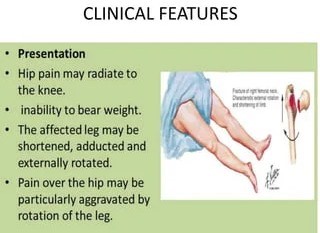Antacids will help reduce the heart burn symptoms associated with gastro-esophageal reflux by ...
Raising the gastric (stomach) pH.
Reducing the amount of gastric acid produced in the stomach,
Forming a protective coating in the stomach.
Reducing episodes of reflux.
The Correct Answer is A
Antacids work by raising the pH level in the stomach, which means they make the stomach less acidic. This helps to reduce the symptoms of heartburn associated with gastroesophageal reflux disease (GERD). By increasing the pH, antacids help to neutralize the excess stomach acid that can cause irritation of the esophagus and lead to heartburn. However, it's important to note that antacids provide temporary relief and do not treat the underlying cause of GERD.
Nursing Test Bank
Naxlex Comprehensive Predictor Exams
Related Questions
Correct Answer is D
Explanation
This finding suggests that the client may have experienced a hip fracture. The shorter leg can be a result of the fractured bone, causing a misalignment or displacement. The protruding bump on the side can be a sign of a dislocated or fractured hip joint. It is important to assess and confirm this suspicion through appropriate diagnostic measures, such as X-rays, to provide the necessary medical intervention and management.

Correct Answer is B
Explanation
Venous thromboembolism refers to the formation of blood clots in the veins, which can lead to serious complications such as pulmonary embolism. After surgery, immobility and reduced activity can increase the risk of developing blood clots. Therefore, it is crucial to prioritize measures to prevent venous thromboembolism, such as early mobilization, compression stockings, and anticoagulant medications, to ensure the patient's safety and well-being.
Whether you are a student looking to ace your exams or a practicing nurse seeking to enhance your expertise , our nursing education contents will empower you with the confidence and competence to make a difference in the lives of patients and become a respected leader in the healthcare field.
Visit Naxlex, invest in your future and unlock endless possibilities with our unparalleled nursing education contents today
Report Wrong Answer on the Current Question
Do you disagree with the answer? If yes, what is your expected answer? Explain.
Kindly be descriptive with the issue you are facing.
